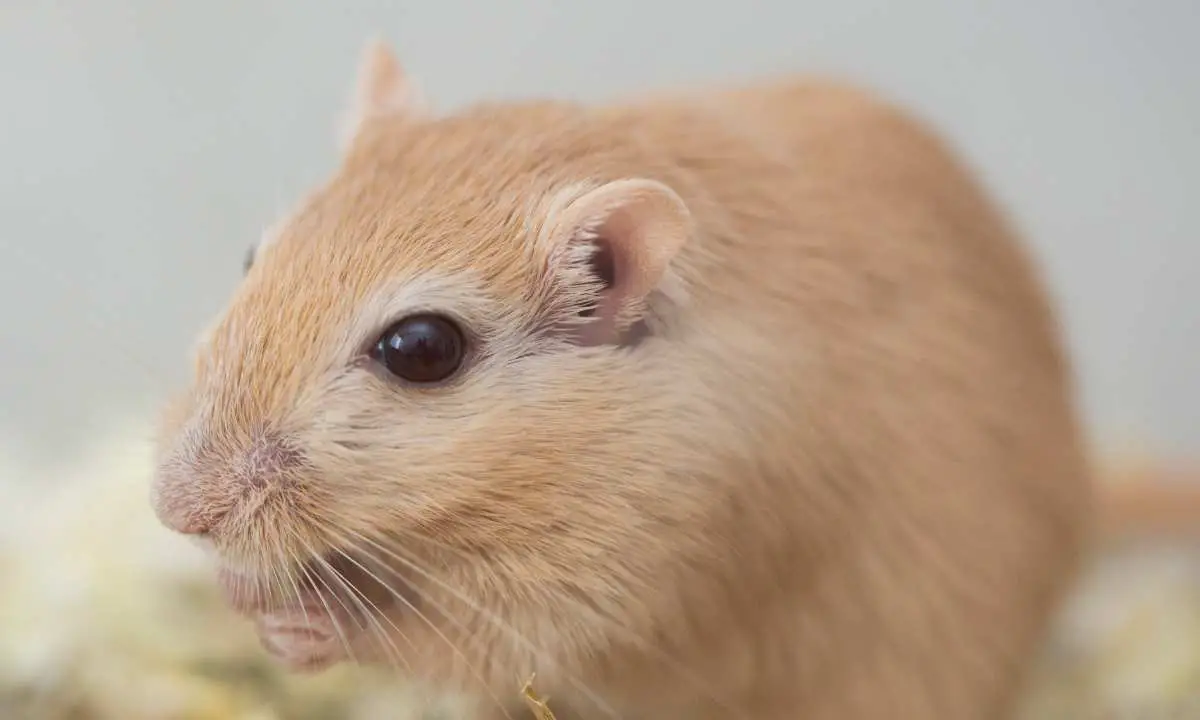
Welcome to the wonderful world of pet ownership as a busy college student. In this guide, we’ll explore the best pets for college students, covering a variety of animals that are perfect companions during your academic journey.
- The Importance of Pets for College Students Pets offer a wide range of benefits. They can provide companionship, reduce stress, and even help in developing responsibility and routine. Students who want a furry friend will find that pets are good for college life, offering emotional support during challenging academic periods.
- Factors to Consider When Choosing a Pet in College Before diving in, it’s essential to think about the following:
- Time commitment: Make sure you can provide sufficient care and attention.
- Pet’s lifespan: Some pets have a life span that may extend beyond your college years.
- Space: Pets that don’t require much space are ideal for college students living in a dorm or apartment.
- Budget: Owning a pet involves both initial and recurring costs.
- College Policies: Not all colleges allow pets on campus, so it’s crucial to check your college’s policy before bringing a pet to college.
- Understanding the College Environment College life can be unpredictable, with late-night study sessions and weekend social activities. When choosing a pet, consider one that’s adaptable and doesn’t require a lot of maintenance. A low-maintenance pet for a college student might be a fish, a small rodent, or a bird, depending on the dorm policies. These animals are often considered great pets for students because they’re easy to take care of, quiet, and don’t take up much space.
Remember, the ideal pet for college students is one that fits well with your lifestyle and college environment. Whether you’re looking for apartment pets or small pets that are easy to handle, this guide will help you find the perfect companion for your college journey.
Table of Contents
Birds as College Pets
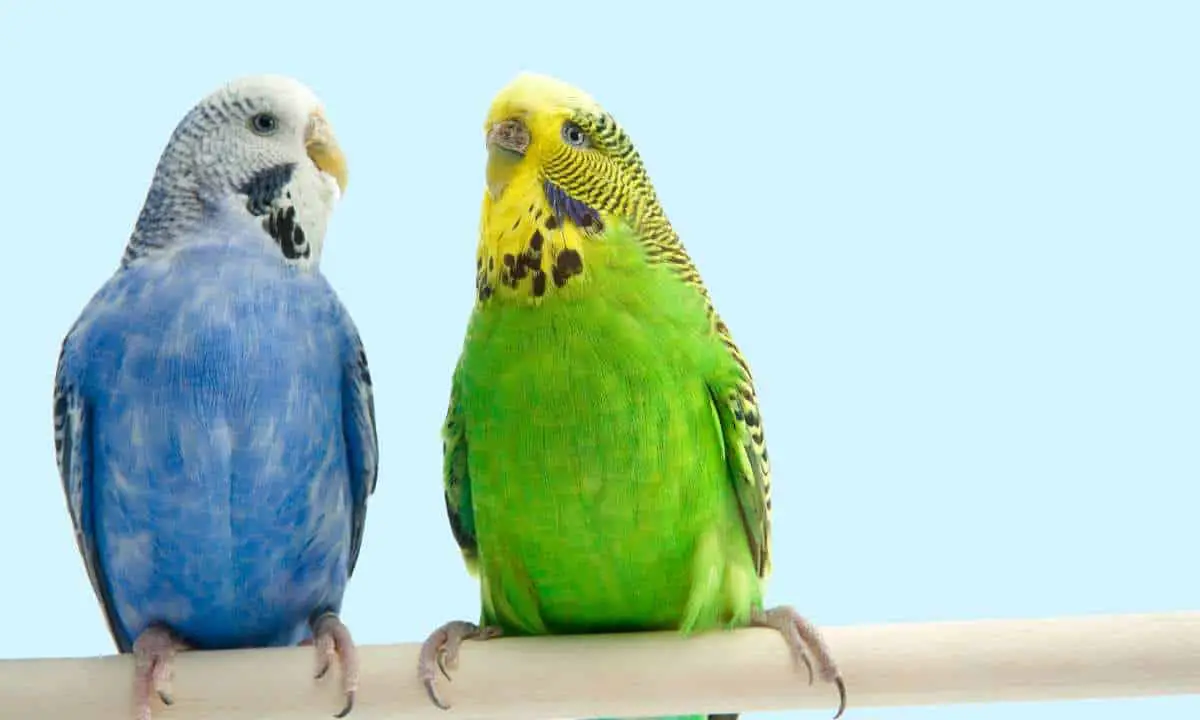
If you enjoy the cheerful chirping of birds and their vibrant colors, then a bird could be the perfect pet for a college student like you. Birds can be engaging and interactive but also allow for some distance when you’re caught up in studies.
- Types of Birds Suitable for College Students When considering birds as pets, it’s important to remember that different species have different needs and temperaments. Some birds require a lot of interaction and live for a long time, while others are more low-key. Budgies, for instance, are small, relatively quiet, and easy to care for, making them one of the best pets for busy college students. Canaries and finches, on the other hand, prefer not to be handled too much but their pleasant singing can bring a relaxing atmosphere to a busy college dorm.
- Care and Maintenance of Birds Even though birds are relatively low-maintenance pets for college students, they still require consistent care:
- Cage cleaning: Regular cleaning helps keep your bird healthy.
- Feeding: A balanced diet keeps them happy and healthy. Most birds eat a diet of seeds, fruits, and vegetables, with specific nutritional needs varying by species.
- Social interaction: While birds are generally less demanding than furry pets, many enjoy social interaction, whether it’s singing along with you or learning tricks.
- Birds and Noise: Considerations for the College Environment Birds can bring joyful noise and life to a space, but they might also disturb others if too loud. It’s crucial to consider the noise level before bringing a bird into a college dorm or apartment. Some birds, such as cockatiels, can be quite vocal, while others, like finches, make softer, more subtle sounds. Budgies can also be a good option as they tend to have softer chirps and chatters.
Birds can be great pets for college students looking for companionship without the high-maintenance needs of larger pets. Whether you’re attracted to the sociability of a budgie or the song of a canary, you’ll find birds to be wonderful, easy-to-care-for companions during your college years.
Hamsters: A Popular Choice for College Students
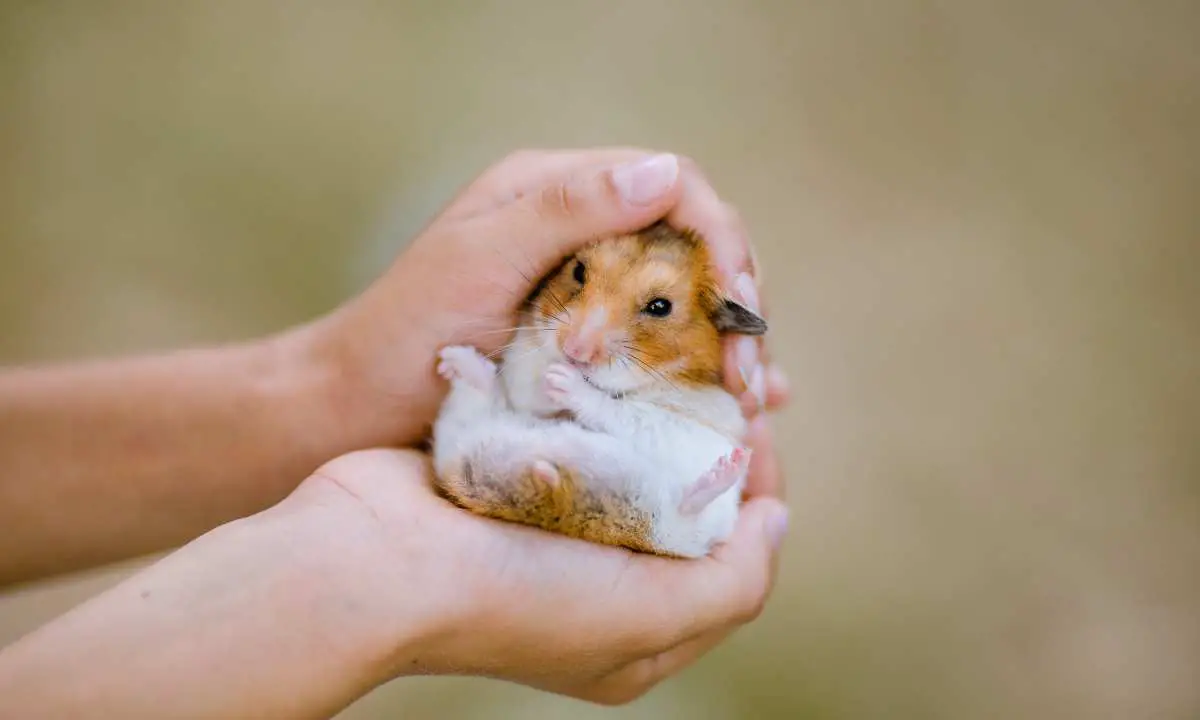
Hamsters have long been considered an ideal pet for college students. Their small size, adorable features, and ease of care make them a popular choice for those living in a college dorm or apartment.
- Why Hamsters Make Great College Pets Hamsters are generally quiet, need limited space, and are easy to maintain. Their cute, inquisitive nature can provide endless entertainment, while their small size means they don’t take up much space. This makes them perfect for students with limited living quarters. Plus, watching a hamster go about its business can provide a relaxing diversion from intensive study sessions.
- How to Care for a Hamster Even though they’re low-maintenance, there are a few things you should keep in mind when caring for a hamster:
- Habitat: Hamsters require a clean, spacious cage with plenty of opportunities for exercise and exploration.
- Diet: A variety of fresh fruits, vegetables, and store-bought hamster food will ensure a balanced diet.
- Handling: Hamsters are delicate, so they need to be handled gently.
- Nighttime Activity: How Hamsters’ Nocturnal Habits Affect College Life It’s important to note that hamsters are nocturnal. This means they’re most active at night, which could align well with the schedule of a busy college student who stays up late studying. However, their nighttime activity could also be a potential drawback, especially if their wheel is noisy.
A hamster can be a delightful, easy-to-care-for pet for a busy college student. Despite their small size, these little critters can add a lot of joy and relaxation to your college experience. As low-maintenance pets, hamsters are indeed good for college students who want the companionship of a pet without too much hassle.
Fish: Low Maintenance Pets for College Students
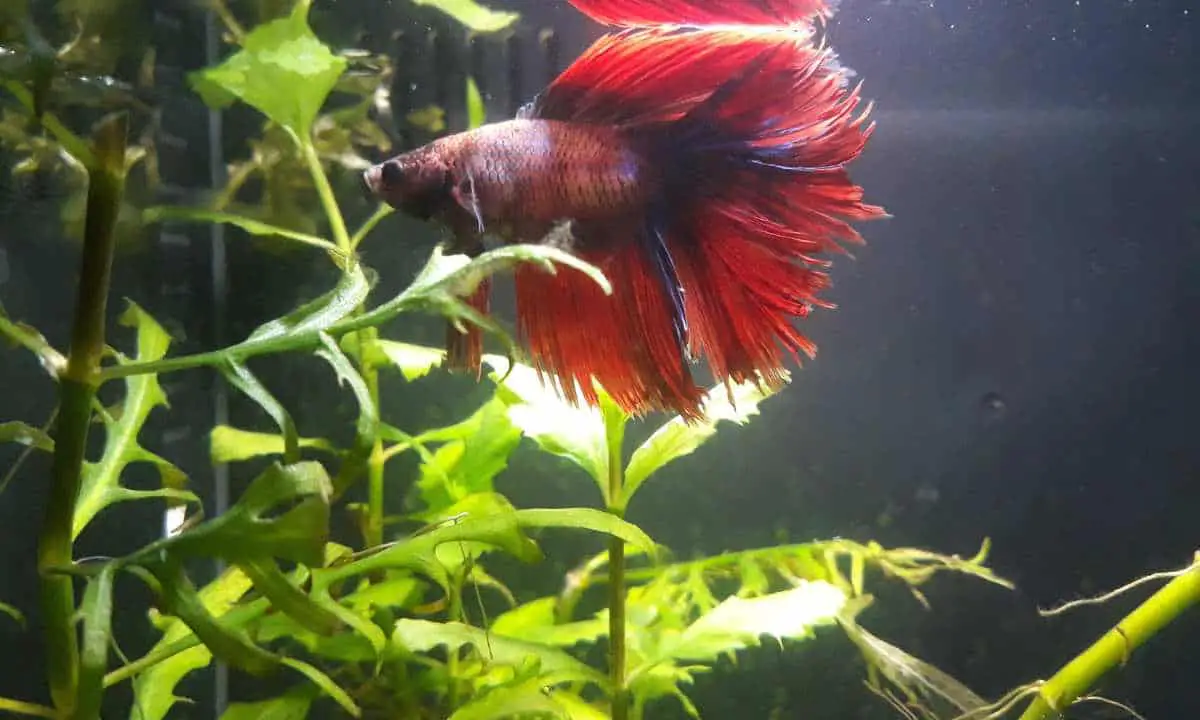
Fish is often considered one of the best pets for busy college students. They don’t require much interaction or space, and they won’t disturb your study sessions with loud noises. Plus, maintaining an aquarium can be a soothing and rewarding hobby.
- Types of Fish Suitable for College Students When it comes to choosing fish, you have many options. Some popular pets for students include betta fish and goldfish, as they’re hardy and can thrive in a small tank. Other types of fish, such as guppies, tetras, and mollies, are also excellent choices, provided you have a bit more space and time for their care.
- Setting Up a Fish Tank in Your Dorm Room Setting up a fish tank in a college dorm or apartment is not as challenging as it might seem. Here are some factors to consider:
- Tank size: This depends on the type and number of fish. A betta fish can live happily in a small tank, but most other fish need more space.
- Equipment: Besides the tank, you’ll need a filter, a heater (for tropical fish), a light, and some decor to provide hiding spots for the fish.
- Aquarium Maintenance: Keeping Your Fish Healthy and Happy Despite being low-maintenance pets, fish still require some basic care to stay healthy:
- Regular feeding: Most fish should be fed once or twice a day.
- Cleaning: The tank should be cleaned regularly to prevent the buildup of harmful substances.
- Water changes: Partial water changes should be done weekly to maintain water quality.
- Monitoring: Check your fish daily for any signs of disease or stress.
Having a fish as a pet can be a calming and engaging experience for a busy college student. Watching these creatures swim around in their tank can be relaxing and even therapeutic after a long day of classes. With a bit of basic care and maintenance, fish can make awesome pets for those living in a college dorm or apartment.
Mice: Small and Easy to Care for
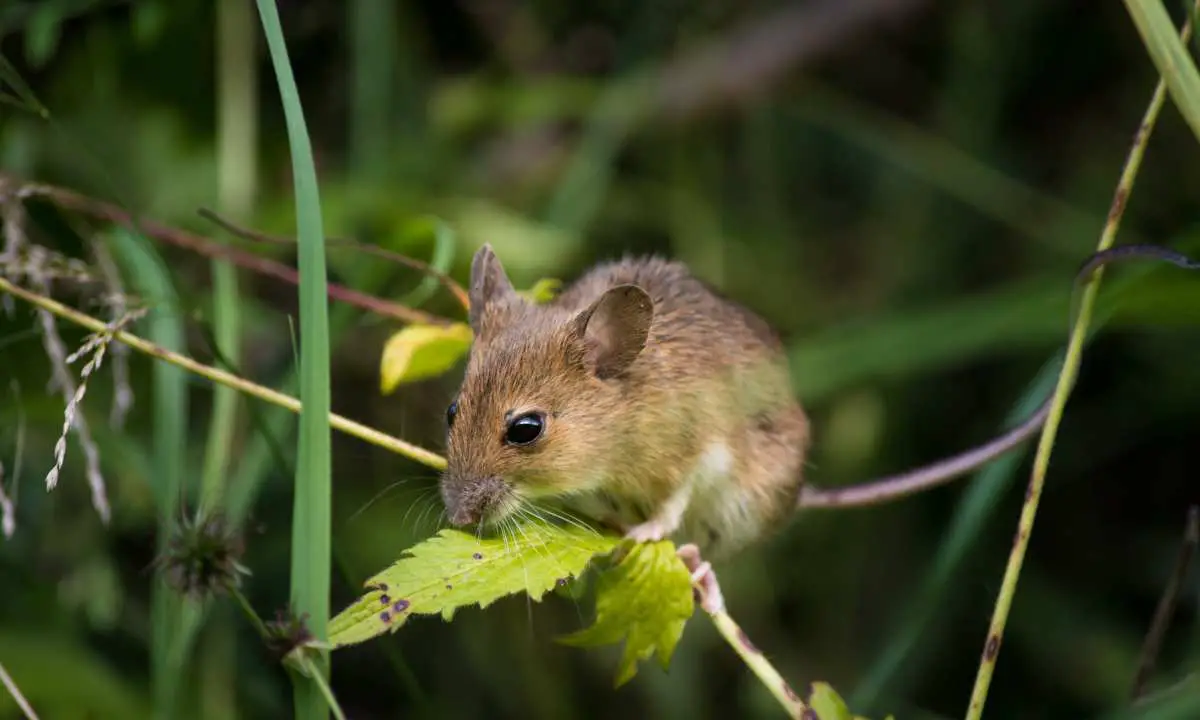
Pet mice can be an excellent choice for a college student looking for a pet. They’re small, easy to handle, and their maintenance doesn’t require a lot of time, making them one of the ideal pets for the college lifestyle.
- Benefits of Having Mice as Pets Mice are not just small and cute, they’re also highly sociable and intelligent. They can learn tricks, recognize their owner, and even navigate mazes. Observing their behavior and interaction can be an enjoyable pastime, offering a nice balance to the rigors of academic life.
- Caring for Your Pet Mouse Caring for a mouse is relatively straightforward, which is why they are popular pets among students:
- Habitat: A mouse needs a cage with plenty of space to explore, along with hiding places for sleep. The cage should be cleaned regularly.
- Diet: A balanced diet for a mouse includes grains, fruits, and vegetables. Most pet stores also sell mouse food, which is usually a mix of grains and seeds.
- Exercise: Mice are active and require toys and activities to stay happy.
- Social Needs of Mice: The Importance of Companionship Mice are very social animals and they can become lonely if kept alone. So, if you’re considering a mouse as a pet, it might be a good idea to get two. They’ll keep each other company when you’re busy with classes or studying.
Mice can make great pets for college students. They’re small, fun to watch, and don’t take up much space, so they’re ideal for a college dorm. Plus, the minimal care they require makes them easy to take care of for a busy college student. Keep in mind, though, they do enjoy social interaction, so consider having more than one for the best environment for your furry friends.
Small Breed Dogs: A Companion in College

Although owning a dog in college may seem challenging, choosing a small breed can make this a rewarding experience. Small breed dogs can provide companionship, and emotional support, and often adapt well to living in smaller spaces like a college dorm or apartment.
- Choosing the Right Breed for Your Lifestyle When it comes to choosing a small breed dog, consider factors like temperament, exercise needs, and grooming requirements. Breeds like French Bulldogs, Cavalier King Charles Spaniels, and Shih Tzus are generally adaptable and don’t require excessive amounts of exercise, making them ideal pets for busy college students.
- Responsibilities of Owning a Dog in College Dogs, even small breeds, require more care and attention than most other pets. Here are some responsibilities a college pet owner may have:
- Regular feeding and access to water: A well-balanced diet is vital for your dog’s health.
- Exercise: Even small dogs need regular physical activity. Short walks or play sessions can suffice.
- Socialization: Dogs are social creatures and require interaction with their owners and other dogs.
- Training: Basic training for commands and housebreaking is crucial.
- Exercise and Socialization: Keeping Your Dog Healthy and Happy Physical activity is essential for a dog’s overall well-being. Regular walks, playtimes, and the opportunity to socialize with other dogs can keep your pet happy and healthy. However, keep in mind that some college campuses have restrictions on where pets can go, so consider your options for dog-friendly spaces.
While a small breed dog can make a wonderful companion for a college student, it’s crucial to understand the responsibilities that come with dog ownership. Dogs require more time and attention than other pets, but for many, the rewards of dog ownership far outweigh these challenges. Just remember to choose a breed that fits your lifestyle and capacity to provide care, and you’ll have a loyal friend to accompany you through your college years.
Cats: Independent Pets for Busy Students

Cats can be the perfect pets for busy college students. They’re independent, require less attention than dogs, and adapt well to a college dorm or apartment lifestyle. However, caring for a cat involves more than just providing food and a litter box.
- Choosing the Right Cat for a College Lifestyle When choosing a cat, consider factors like age, temperament, and care requirements. Some cats require more interaction and grooming than others. College students who want a pet but have busy schedules might find adult cats or specific breeds like the British Shorthair or the American Shorthair to be great for college students because they’re typically more independent and require less grooming.
- Cat Care Tips for College Students Cats might seem like low-maintenance pets, but they still require care and attention. Here are some cat care essentials:
- Regular feeding: Cats need to be fed a balanced diet. Many pet stores sell cat food designed to meet their dietary needs.
- Litter box maintenance: Cats are clean animals, and a well-maintained litter box is essential for their happiness and hygiene.
- Play and interaction: Even though cats are independent, they still need interaction and playtime. Toys, laser pointers, or even a simple string can keep them entertained.
- Regular vet check-ups: Cats, just like any other pet, require regular veterinary care.
- Allergies and Roommates: Navigating Cat Ownership in Shared Spaces Before bringing a pet to college, it’s essential to consider any potential allergies your roommates might have. You wouldn’t want to unintentionally cause discomfort to your roommates. Additionally, check the housing policies about pet ownership at your college or apartment.
While a cat can be a wonderful pet for a college student, they require care and attention. As independent as they are, they still rely on their owners for their basic needs. Before adopting a cat, consider if your schedule and lifestyle can accommodate a pet. If so, you’ll find cats to be a comforting presence in the sometimes-stressful college environment.
Guinea Pigs: Fun and Friendly Pets
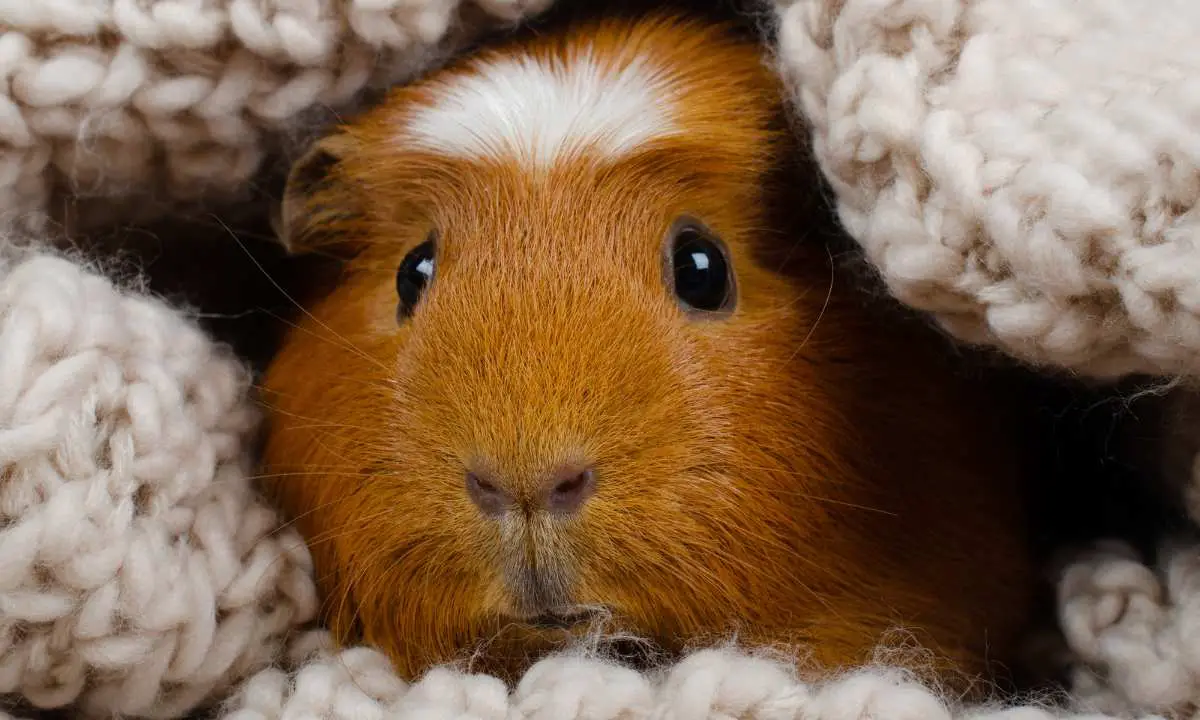
Guinea pigs are popular choices as pets among college students and for good reasons. They’re small, friendly, and not as nocturnal as some other rodent pets, making them a great option for students.
- Why Guinea Pigs Are Great for College Students Guinea pigs are sociable, gentle, and they rarely bite, making them one of the ideal pets for college students. They have a longer lifespan than many small pets, typically living for five to seven years. Guinea pigs also express a wide range of entertaining behaviors and vocalizations, which can bring joy and relaxation to a busy college student.
- Caring for Your Guinea Pig While guinea pigs are low-maintenance pets compared to dogs or cats, they do require some specific care:
- Diet: Guinea pigs need to be fed a diet rich in vitamin C, along with a variety of fresh vegetables and fruits.
- Habitat: They need a large cage with a solid floor covered with bedding, and they enjoy having hiding places.
- Exercise: Like all pets, guinea pigs also need exercise and playtime outside their cage.
- Space Requirements: Providing a Comfortable Home for Your Guinea Pig While they are small pets, guinea pigs require more space than hamsters or mice because they tend to move around a lot. You’ll need a large cage, and ideally some safe, supervised roaming space. Remember to consider this space requirement when you’re thinking of keeping a guinea pig in a dorm room or apartment.
Guinea pigs make wonderful pets for college students, as they have a good balance of being fun, friendly, and relatively low-maintenance. However, like any other pet, owning a guinea pig requires commitment. Be sure that you’re ready to provide the proper care and love that a guinea pig, or any pet, deserves.
Turtles: Low Maintenance Reptiles

For students interested in a pet with a slower pace of life, turtles are a great option. They are exotic pets that are relatively low maintenance and can add a unique touch to your college experience.
- Types of Turtles Suitable for College Students There are many kinds of turtles that are suitable as pets, but when considering a turtle as a college pet, smaller species are often the best option. Red-eared sliders, mud turtles, and painted turtles are small species that are commonly kept as pets. Remember, though, turtles, especially pets like sliders, can live a long time, often beyond 20 years. Therefore, adopting a turtle is a long-term commitment.
- Caring for Your Pet Turtle While turtles are less demanding than a dog or cats, they require specific care. Here are some essentials:
- Habitat: Turtles require an aquatic environment with a dry area where they can bask. The size of the tank depends on the species, but remember, more space is always better.
- Diet: Turtles are omnivorous, requiring a balanced diet of proteins, fruits, vegetables, and turtle pellets. Thus, feeding them is easy.
- Light and Heat: Like other reptiles, turtles need a heat source and UV light to stay healthy.
- Longevity of Turtles: Understanding the Long-Term Commitment When considering getting a turtle, it’s crucial to understand its lifespan. Most turtle species can live for many decades, which means adopting a turtle is a long-term commitment. Be prepared to take care of your pet turtle even after you transition from high school to college and beyond.
Turtles, while less traditional, can make great pets for college students. They’re a unique choice, but it’s important to consider the specific care they need. They require a bit of work to set up their habitat initially, but after that, they’re relatively low-maintenance pets for college students. They can be quite enjoyable to watch, making them a calming presence in busy college life. However, keep in mind their long lifespan when considering if a turtle is the right pet for you.
Other Pets to Consider
In addition to the pets we’ve already discussed, there are numerous other small animals that can be great companions for college students. Here’s a look at a few options that are sometimes overlooked, yet can be wonderful choices if they suit your lifestyle and interests:
- Lizards: Many types of lizards are quiet, relatively easy to care for, and perfect for a small space, such as a college dorm room. Bearded dragons and leopard geckos are popular choices among college students looking for pets.
- Hermit Crabs: These adorable crustaceans are low-maintenance and require a small tank, making them a practical option for college students.
- Chinchillas: Known for their soft fur and playful personalities, chinchillas are great for those willing to commit to their care. They’re nocturnal, so they might be best for college students who are active at night.
- Snakes: Certain snake species like ball pythons and corn snakes can be great pets for college students. They require minimal attention, but be mindful of the potential uneasiness of roommates or housing rules regarding reptiles.
- Rabbits: Rabbits are social, playful, and they can even learn tricks. However, they require a lot of care and a decent amount of space, making them suitable for students living in pet-friendly apartments rather than dorms.
- Hedgehogs: Hedgehogs are quiet, friendly, and relatively easy to care for. However, they’re nocturnal, so you’ll need to adapt to their sleep schedule.
- Frogs: Certain frog species, like tree frogs or poison dart frogs, require a small terrarium and minimal interaction, making them a suitable choice for a busy college student.
- Gerbils: Gerbils are small, easy to care for, and they enjoy human interaction. They’re good pets for college students who have little time to spare for socializing with their pets. I have a more in-depth guide about the pros and cons here.
- Bunnies: Similar to rabbits, bunnies are social and enjoy playing with their owners. However, they need a larger cage and daily exercise outside it.
Each of these animals has unique care requirements, so it’s essential to do your research before deciding which one would be the best pet for you. While there is a range of pets to choose from, remember that owning a pet is a significant responsibility, so be sure you can commit the necessary time and resources to properly care for the pet you choose.
The option for a college student to have a pet can greatly enhance their college experience, but it is important to ensure it also aligns with their lifestyle, budget, and accommodation arrangements.
The Role of Pets in Emotional Support
College life, with its academic pressures and challenges, can be stressful. As many college students can attest, it’s a huge transition, often involving moving away from home and adjusting to a new environment. Pets, including the ones listed above, can provide significant emotional support during these times.
- The Benefits of Emotional Support Animals: Studies have shown that owning a pet or emotional support animal can alleviate symptoms of stress, anxiety, and depression. Many college students reported that their pets provide them with a sense of comfort and companionship, which can be especially valuable in a challenging college environment. The gentle nudge for a walk or the soft purr of a cat can have a calming effect, offering a much-needed break from study sessions.
- How to Get an Emotional Support Animal in College: If you think an emotional support animal could help you, it’s essential to know how to go about getting one. The process usually involves obtaining a letter from a licensed mental health professional stating that the animal provides the necessary support for your emotional well-being. Remember, an emotional support animal is different from a service animal, and the rules for each can differ significantly.
- Certification and Housing Rules: Navigating College Policies: Many colleges have begun to recognize the importance of emotional support animals for students’ mental health. They may have policies allowing these animals in college housing, even if pets are generally prohibited. However, these rules can vary widely from one college to another. Before bringing a pet to college, be sure to research your college’s specific policies. You may need to provide certification for your emotional support animal, and there may be restrictions on the types of animals allowed.
Emotional support animals can be a great option for students who are dealing with emotional or mental health issues. Whether it’s a dog, cat, guinea pig, or a different kind of pet, the comfort and companionship they provide can make a significant difference in a student’s well-being. However, it’s essential to remember that while they offer many benefits, pets require time, care, and attention, so it’s crucial to ensure that you can meet these needs before bringing a pet into your college environment.
Pet Care Budget

While owning a pet in college can be rewarding, it’s crucial to consider the financial aspect of pet ownership. Keeping pets in a college dorm or an apartment comes with various costs, not just the upfront expenses of getting a pet, but also the ongoing and potential emergency costs.
- Understanding the Financial Commitment of Pet Ownership: When you’re going to college, it’s crucial to be financially aware, and that extends to pet ownership. Pets aren’t just adorable, they also come with a financial responsibility. From food and toys to routine vet care and unexpected medical expenses, the costs can add up. Different pets come with different costs. For instance, fish and rodents might be less expensive to maintain compared to cats or dogs.
- Budgeting for Initial Costs, Ongoing Costs, and Potential Emergency Costs: Budgeting is essential for any college student, and it becomes even more important when you’re a pet owner. Initial costs include purchasing or adopting your pet, spay/neuter fees, initial vaccinations, and supplies like a cage, bed, leash, or tank. Ongoing costs involve food, litter, regular vet check-ups, vaccinations, and toys. It’s also wise to set aside some funds for potential emergency costs, like unexpected illness or injuries.
Before you decide to bring a pet to college, you need to make sure that it won’t stretch your budget too thin. Students since times immemorial have found creative ways to make pet ownership work, but it requires planning, foresight, and a little bit of financial acumen.
Pet ownership can be a wonderful experience, and it can teach you a lot about responsibility. However, it’s essential to ensure that you can afford to give your pet the care they need before you bring them into your home. This way, you can avoid any heartache of having to give up your pet or the stress of being unable to afford necessary care. As the saying goes, “An ounce of prevention is worth a pound of cure.”
Remember, the best pets for college students aren’t just the ones that are easy to care for, but also the ones that fit within your budget. If you’re prepared, you’ll find that taking care of a pet can be a rewarding and enriching part of your college experience.
Pet-Friendly Housing
Finding pet-friendly housing in college can be a challenge but it’s an important consideration when you decide to bring a pet to college. It’s necessary to find an environment where both you and your pet can be comfortable, and that follows all housing policies. Here’s what you need to know:
- Finding Pet-Friendly Housing in College: Not all college housing options are pet-friendly. Many dormitories do not allow pets, so you may need to live off-campus. Start by looking at off-campus housing options that allow pets. If you’re looking for the best pets for college, consider the housing policy, as some housing options only allow certain types of pets.
- Understanding and Navigating Housing Policies: Housing policies vary depending on the college and the individual housing facility. Some colleges might only allow small pets or certain kinds of pets, like fish or birds. Others might allow larger pets, like cats or dogs. Be sure to understand these policies before you bring a pet to college. You don’t want to be the student who leaves them behind because pets are not allowed.
- Considerations for Roommates and Neighbors: Pets can be adorable, but they can also be disturbing to others, especially in shared spaces. If you’re living with roommates or in close proximity to other students, it’s crucial to consider their comfort and preferences too. A quiet pet might be the best choice if you’re in close quarters.
- Cleanliness and Maintenance: Pets, especially the cleanest pets, require effort to keep their living areas neat and tidy. From cleaning a fish tank to scooping a litter box, you’ll need to make sure you can handle the necessary maintenance to keep your living space clean and odor-free.
Whether you’re thinking about bringing a pet to college or you’re already a pet owner looking for a pet-friendly housing option, understanding the rules and being respectful of others will make the process much easier. With some research and planning, you can find a living situation that’s perfect for both you and your pet. Remember, while pets can be great companions in college, they’re also a responsibility, and part of that responsibility is ensuring that they have a safe and comfortable place to live.
Balancing Pet Care and Academics

Navigating the bustling world of college can be challenging, even more so when you bring pets into the equation. Here’s how you can balance pet care and academics, ensuring neither your pet nor your studies suffer from neglect:
- Create a Schedule: This cannot be emphasized enough. Having a well-structured routine not only helps you manage your academic workload but also ensures that your pet gets the care and attention it needs. This can include specific times for feeding your pet, taking them on walks, cleaning their living space, and spending quality time together.
- Take Advantage of Low-Class Hours: Pets, particularly adorable pets, can offer a great break from the stress of college life. If you find yourself with low-class hours or gaps between classes, this might be an excellent time to bond with your pet or to carry out necessary pet-care tasks. This way, your pet isn’t simply a responsibility, they’re also a welcome relief and can make it easy to navigate the pressure of college.
- Involve Your Roommates: If you have roommates who are comfortable and willing, involving them in caring for your pet can be helpful. It not only makes them feel involved but can also be beneficial when you’re swamped with academic work. However, make sure this is a shared decision and never leave your pet’s care entirely to your roommates.
- Consider Pet Care Services: In times of academic stress, when assignments pile up, and exam season is around the corner, it might be helpful to consider pet care services. Many college towns have dog-walking services or pet daycares that can ensure your pet is well cared for while you focus on your academics.
- Plan for Holidays and Breaks: Planning for breaks can be tricky, particularly if you can’t take your pet home with you. Start planning early to avoid last-minute stress and to ensure your pet is well cared for during your absence.
Remember, while pets can bring great joy and stress relief, they should never become a source of stress or cause disturbances for other students. Proper planning, consideration for others, and responsible pet ownership can help you balance pet care and academics in college. Be sure to consider these points before you bring a pet to college.
Travel and Pets

Travel and holiday periods can be a challenging time for pet owners, especially for college students. While the idea of bringing your pet along might seem appealing, there are several things to consider to ensure your pet’s well-being during travel times.
- Pet-Sitter or Boarding: If you’re unable to take your pet with you, consider having a trusted friend pet-sit or using a reputable boarding service. This is often the easiest solution for the pet and the student leaves them behind. Ensure your chosen caretaker is responsible and familiar with your pet’s needs.
- Taking Your Pet with You: In some cases, you might be able to bring your pet with you. This is often more applicable for smaller pets that are easy to travel with and cause no disturbance to others. Before deciding, research the travel conditions and accommodation rules at your destination to ensure that it is pet-friendly and won’t lead to disturbing other students or people around you.
- Local Laws and Regulations When considering bringing a pet to college, it’s essential to understand and respect the local laws and regulations related to pet ownership. Not only do these rules exist to protect animals, but they also ensure the peace and well-being of the entire community.
- Understand Pet Regulations at Your College: Different colleges have different rules when it comes to pets. Some institutions may allow small, low-maintenance pets, while others may have stricter rules. Make sure to familiarize yourself with your college’s pet policy. This usually involves understanding which pets are allowed and under what conditions. You may also need to register your pet with the college and follow certain guidelines, such as keeping your pet within designated areas.
- Check Local City or County Regulations: Apart from college rules, you also need to be aware of the local laws and regulations in your city or county. These might include leash laws for dogs, licensing requirements, and regulations for specific types of pets. Some cities might have restrictions on certain breeds or exotic animals. It’s always best to look into these laws before bringing your pet to college.
- Understand Noise and Disturbance Laws: If your pet tends to be noisy, you need to consider the local noise and disturbance laws. Making them great pets in a dorm setting often means keeping their noise levels low to not disturb other students in the dorm room.
- Compliance with Animal Welfare Laws: These laws protect animals from neglect and abuse. As a pet owner, it’s your responsibility to ensure your pet is well taken care of. This includes providing proper food, shelter, healthcare, and a safe, clean environment.
- Leaving Your Pet at College: If your college allows pets during the holidays and you have someone who can take care of them, this could be an option. Ensure the pet’s caretaker is reliable and understands your pet’s needs. It’s also great for college students who are staying back for the holidays and would appreciate some furry company.
- Use a Professional Pet Transport Service: If you’re traveling long distances and your pet can’t travel with you directly, consider using a professional pet transport service. These services are experts in handling pets during travel, ensuring their comfort and safety.
Remember, each pet is different, and what works best for one might not work for another. So, consider your pet’s personality, health, and comfort when making travel arrangements. It’s essential to ensure your pet’s well-being while you’re away, as well as the peace of mind of knowing your pet is safe and well cared for. This way, you can focus on your travels or holidays without undue stress or worry.
The keyword here is planning. Making travel arrangements for your pet can seem daunting, but with a little preparation and forethought, you can ensure a safe and comfortable arrangement for your pet and a stress-free travel experience for you.
Pet Health and Veterinary Care
While pet ownership can be a rewarding experience, it also requires a serious commitment to the health and wellbeing of your pet. Regular veterinary care plays a vital role in this commitment. Just like humans, pets need regular check-ups and care to ensure they are healthy and happy.
- Regular Check-ups: Taking your pet to the vet for regular check-ups is crucial. These visits allow the vet to monitor your pet’s health and detect any potential issues early. Regular check-ups include things like physical exams, vaccinations, and preventive treatments for parasites.
- Recognizing Signs of Illness: As a pet owner, you need to be observant and responsive to changes in your pet’s behavior or appearance. Unusual behavior, changes in eating or drinking habits, or signs of discomfort may indicate a health problem. It’s easy to look up the symptoms online, but it’s always best to consult with a vet.
- Emergency Care: Despite our best efforts, emergencies can happen. It’s essential to know where the nearest emergency veterinary clinic is and how to get there quickly. It’s also advisable to have a basic pet first aid kit at your disposal.
- Pet Insurance: To offset some of the costs of veterinary care, you might want to consider pet insurance. Various plans cover different aspects of care, so do some research to find one that fits your budget and your pet’s needs.
- Routine Care at Home: Regular grooming, feeding a balanced diet, ensuring regular exercise, and providing a safe and clean environment are all part of routine pet care. These are tasks that are often easy for students to bring into their routine, even with a busy college schedule.
Keeping your pet healthy requires a time and financial commitment, but the rewards of pet ownership often far outweigh the costs. A healthy pet is a happy pet, and a happy pet can bring a lot of joy and comfort to a college student living away from home.
Conclusion
Choosing a pet to accompany you through your college journey is a big decision. But as we’ve discussed in this guide, there are many pets that make great companions for students and can fit seamlessly into a busy college lifestyle.
You should consider your lifestyle, budget, and living situation before making a decision. The best college pet is one that suits your specific needs and circumstances. Maybe a low-maintenance fish or a hamster suits your lifestyle, or perhaps a social and friendly cat or dog is a better fit. Perhaps a more unusual choice like a lizard or a hermit crab appeals to you. Whatever you choose, ensure that you can provide a loving and healthy environment for your pet.
All of the options listed above are easy to care for in their own way but remember, no pet is entire without effort. Each comes with its own set of needs and responsibilities. Always keep in mind that bringing a pet into your life means you are responsible for its well-being.
And lastly, remember to think beyond your college years. Pets live for many years and will still be with you after you graduate. Make sure you consider your post-college plans and how your pet will fit into them.
Owning a pet in college can be one of the most rewarding experiences. They provide companionship, reduce stress, and can make your college years unforgettable. With careful thought and consideration, you can choose the perfect pet for your college lifestyle and make your college years even more memorable.




